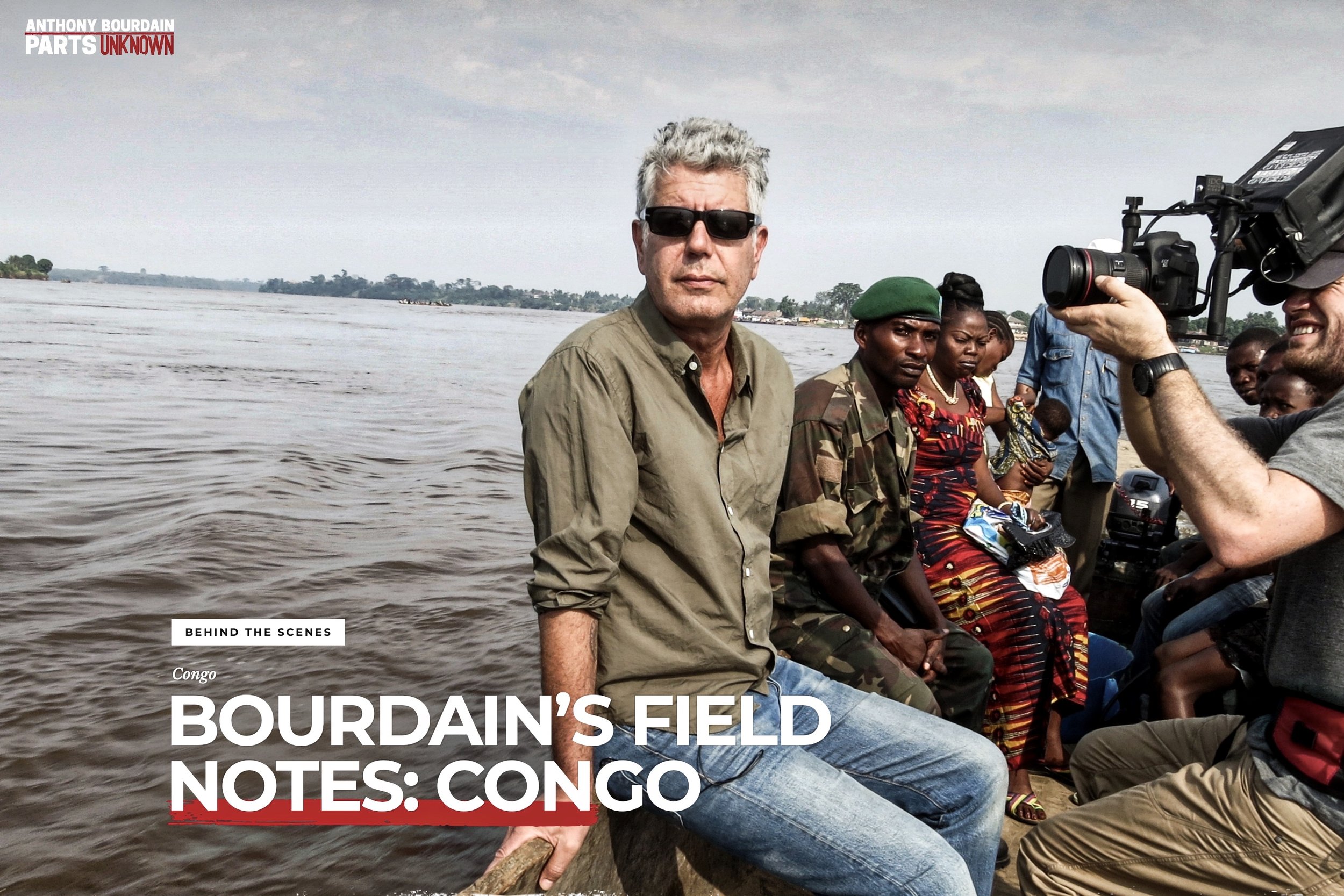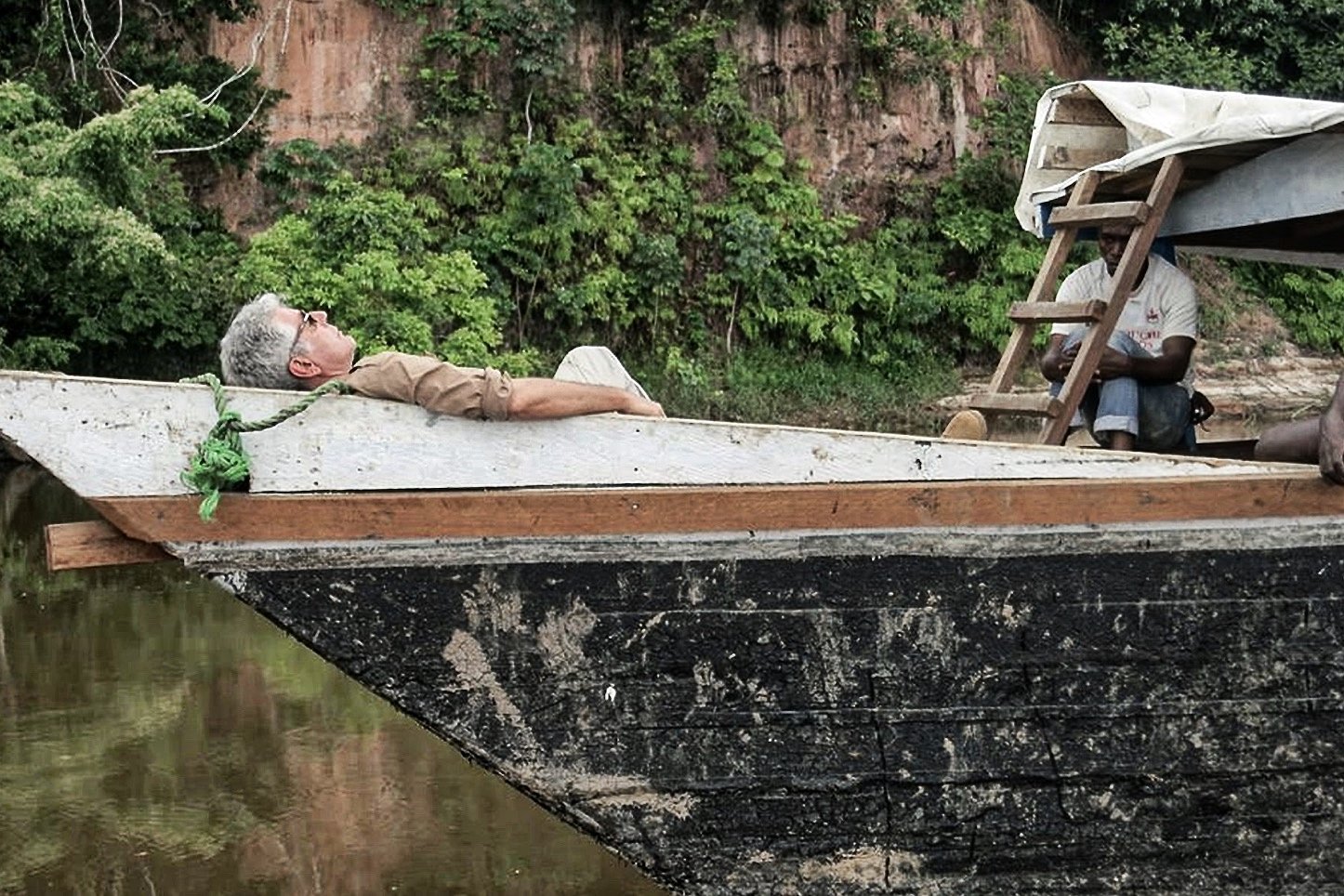Did Anthony Bourdain ever make a more important hour of television? Viewed today, 10 years after ‘Jerusalem’ first aired on CNN’s ‘Parts Unknown,’ it’s hard to think of one.
"They are all nice. But if you scratch, if you push, they'll all say,:’ Throw them in the sea.’”
Ten minutes. That’s about as long as it takes watching Jerusalem, Anthony Bourdain’s eerily moving second-season opener of CNN’s Parts Unknown, for it to sink in: This is going to be an emotionally wrenching gut check, both for what it says and what it doesn’t say about what’s going on today, right now, in that corner of the Middle East.
What Bourdain has to say in the program has relatively little to do with Jerusalem itself, except at the beginning, when the restless wanderer and worldly philosopher in Clark’s Originals desert boots sums up in a few succinct, well-chosen words what the Old City means to three of the world’s established religions. “By the end of this hour,” Bourdain says, perhaps even more prescient than he knew himself to be at the time, “I’ll be seen by many as a terrorist sympathizer, a Zionist tool, a self-hating Jew, an apologist for American imperialism, an Orientalist, socialist, fascist, CIA agent, and worse. So here goes nothing.”
Well, hardly nothing.
It’s what comes next is both poignant and unspeakably sad, given what we know today about what happened on October 7th, four short months ago.
Jerusalem-born, British-Israeli chef, accompanied by chef, restaurateur and food writer Yotam Ottolenghi, who was conscripted into the Israel Defence Forces in his younger days and served three years in IDF’s intelligence headquarters sits quietly in the peaceful, sun-dappled homes of homesteaders who live alongside Israel’s border with Gaza while Bourdain does what he did best as he shares meals with artists, musicians and, yes, peace campaigners: He listens, while others talk.
This section in the program is hard to watch, because these were some of the very homes that were laid waste to last October, taking with them the dreams, aspirations and futures of those who lived there, raised their families there, and were laid to rest there, in more peaceful times. These are not the angry, rage-twisted faces of extremist settlers seen on the nightly news in the months and years leading up to today’s war, but rather the faces of peace campaigners and those who, on October 7th, may well have taken the secrets of a future, lasting peace with them.
Bourdain may have been a born peacemaker without realizing it. Later in the hour, he spends time with families in Palestine’s occupied territories in the West Bank and, in Gaza itself, sharing fatit ’ajir, a dish made of baby watermelon and unleavened bread, and maqluba, a traditional Palestinian dish made of layers of fried eggplant, while sharing ideas about what it will take to forge an enduring peace in the region. He finds himself moved by his visit to the Jewish-Arab-owned restaurant Majda, “You could almost believe for a minute or two that some kind of peace, some kind of reconciliation, meeting of the minds, sanity is possible after you visit Majda,” he says, in improv mode. “It feels like an alternate universe, for a number of reasons.”
For all the keen thoughts and basic beliefs Bourdain shared with his television followers over his years in TV’s spotlight, it was his capacity to listen while others spoke that gave him the insight that allowed him to move so many people with seeming ease.
For all his outsized personality and frequent mood swings — capably captured in field producer and self-confessed Bourdain guinea pig Tom Vitale in his book In the Weeds — Bourdain was at his best when drawing out other people’s internal monologues.
He was always looking for answers to the eternal truths. “I am instinctively hostile to any kind of devotion,” he confesses.
“Certainty is my enemy. I’m all about doubt — questioning oneself and the nature of reality constantly.”
He doesn’t hide his Americanism while a guest in Palestinian homes. “Many, if not most, of these guys are not too sympathetic to my country or my ethnicity, I’m guessing. But there’s that hospitality thing. Anywhere you go in the Muslim world, it seems, no matter what, you feed your guests and do your best to make them feel at home.”
Possibly intending to be ironic, though probably not, the Israeli-born, London-based chef Ottolenghi finds similar parallels in the origins of falafel. “The one thing that is very clear in this part of the world,” Ottolenghi notes, “Palestine, Lebanon, Syria, is that (falafel) has been cooked for many, many generations. There’s actually no answer to it, but the question of food appropriation — who owns the food — you can go on arguing about it forever.”
Bourdain had an unerring ability to size up his surroundings in less time than it takes most people to swipe a smartphone screen. In the Aida refugee camp two km north of Bethlehem — “a graveyard of dreams for Palestinians,” as Spain’s El País described Aida this past December — Bourdain tells his host, theatre director Abed Abusrour: “Six thousand people, (and) of that number 66 percent are under the age of 18. I don’t care where that is in the world; that’s pretty much a recipe for unruly behaviour.”
“Well, yes,” Abusroour replies. “Especially when you don’t have any possibilities to (release) the anger and stress in a creative way … after I finished my studies, I came back here and I started using theatre as one of the most amazing, powerful, civilized, and nonviolent means to express yourself, to tell your story, to be truthful.”
Amazing, powerful, civilized, and nonviolent:
That pretty much sums up Bourdain’s time in Gaza, Israel’s West Bank and in the calm, once quiet garden groves of kibbutzes and family homes that run along Israel’s border with the Palestinian enclave of Gaza.
All this in 42 minutes of television, give or take.
Bourdain: “It's easily the most contentious piece of real estate in the world. And there's no hope, none, of ever talking about it without pissing somebody, if not everybody, off.”
Early in the program, while walking alongside Ottolenghi on Jerusalmen’s Via Dolorosa, “the "last trip Jesus did before he was crucified,” Ottolenghi tells him, then adds they may be walking in the very steps made by Jesus Christ.
“As I often do,” Bourdain says, then adding, after a pause:
“Jesus was here. I feel like I should be more … something,
“A little bit more pious?” Ottolenghi prompts helpfully.
“A little bit?” Bourdain says, with a rueful laugh. “It’s a bit too late for me.”
Not that late, though. The big picture was never far from his mind.
“One can be forgiven for thinking, when you see how similar they are, the two peoples, both of whom cook with pride, eat with passion, love their kids, love the land in which they live or the land they dream of returning to, who live so close, who are locked in such an intimate, if deadly, embrace, might somehow, someday, figure out how to live with each other. But that would be very mushy thinking.”
He is missed.







